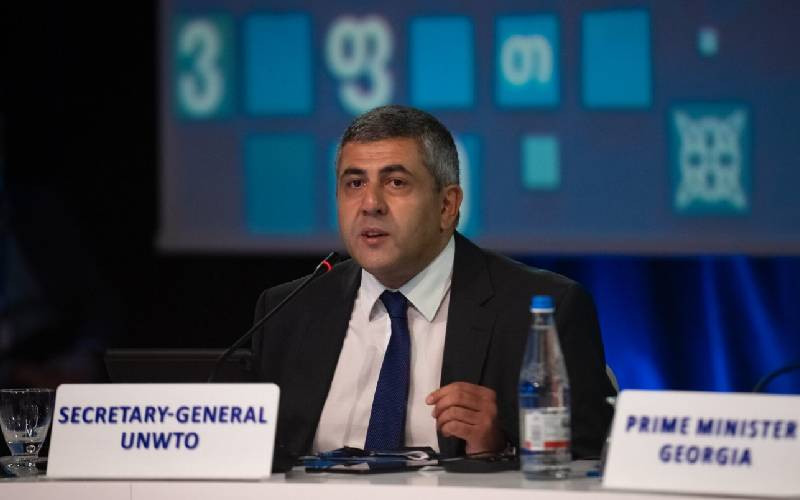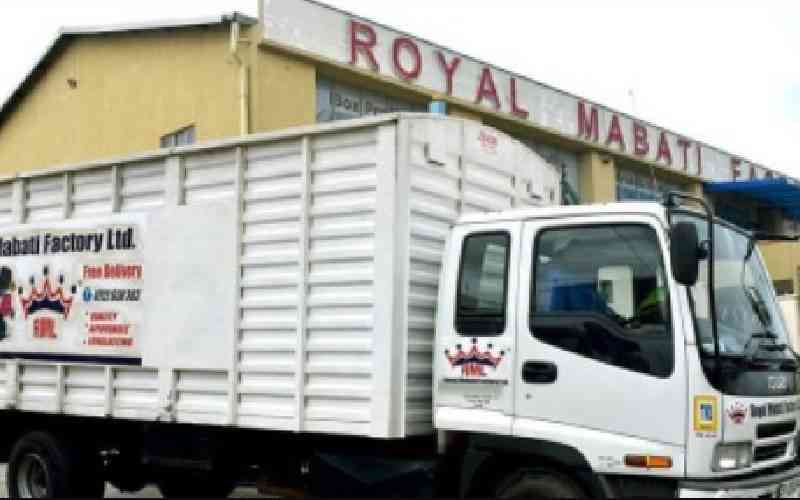By Erick Wamanji
When Reuben Mutiso left Nairobi for Botswana in 1986, it was about adventure. Twenty-three years down the line, what started as an exploration has given forth an empire of architectural accomplishments that many envy.
Dr Mutiso has stamped his mark in Botswana. To his name are iconic structures that include a law court, correctional centre and universities.  |
Dr Reuben Mutiso, Architect |
"I came here in 1986 to explore," he told The Standard on Saturday at Grand Palm Hotel, Gaborone. "Then I was vice-president of International Union of Architects. I had an assignment in South Africa, but could not settle there due to the apartheid policy. I chose to settle in Gaborone."
Business opportunities
"I discovered there were possibilities for business. I started venturing in the local market progressively," he explains.
At the beginning, he says, big contracts were not easy to come by "because the culture of real-estate had not permeated here."
Through his Tectura International, he got a "job here and there".
"But it was not until 1990 when we were approached by the Central Tender Board to work for the government. That was a major breakthrough. The government here is supportive," he explains.
Today, he is one of the most sought-after architects in Botswana.
Mutiso is the chief architect for Botswana’s proposed second university in Francistown, about 500km from Gaborone.
"It is a new thing. We are starting everything from scratch," he says.
But this is not the first learning institution he has designed. He worked on the multipurpose hall for University of Botswana. The hall is considered the country’s finest.
"But the most prestigious for me is the Industrial Court," he says. "Every architect would yearn to be entrusted with such a project. This is because such institutions, including parliaments, are statements of justice and fair play. They stand at the heart of a people’s values."
He has also designed a correctional centre in Fancistown.
"It was not easy to design a correctional centre because all security issues had to be put into consideration. Therefore, we had to travel widely to see how correctional facilities have been done in other parts of the world," he explains.  |
Botswana International University and Botswana University. [PHOTO: ERICK WAMANJI/STANDARD] |
Must deliver
So, how is it practising in a foreign country?
"It is easy to practise in Botswana if you are not a cowboy," he advises. "It is about being professional. You must deliver and conduct yourself with honesty. If you become cheeky, you will not last. Here institutions work and the government will catch up with you. The immigration and anti-corruption people are always alert," he says.
Transparency International rates Botswana as the least corrupt country in Africa.
However, with real estate boom, Mutiso is facing cutthroat competition from South Africans.
But he is not worried. "Our company is even setting up shop in Johannesburg. We are taking competition right into its cradle," he boasts.
Tectura International has offices in Nairobi, Kigali and Dar es Salaam.
"I no longer need to be here. I have employees on the ground and most of the correspondences are done online. With technology, it is easier to know what is happening although some clients insist I must be around."
 The Standard Group Plc is a multi-media organization with investments in media
platforms spanning newspaper print operations, television, radio broadcasting,
digital and online services. The Standard Group is recognized as a leading
multi-media house in Kenya with a key influence in matters of national and
international interest.
The Standard Group Plc is a multi-media organization with investments in media
platforms spanning newspaper print operations, television, radio broadcasting,
digital and online services. The Standard Group is recognized as a leading
multi-media house in Kenya with a key influence in matters of national and
international interest.
 The Standard Group Plc is a multi-media organization with investments in media
platforms spanning newspaper print operations, television, radio broadcasting,
digital and online services. The Standard Group is recognized as a leading
multi-media house in Kenya with a key influence in matters of national and
international interest.
The Standard Group Plc is a multi-media organization with investments in media
platforms spanning newspaper print operations, television, radio broadcasting,
digital and online services. The Standard Group is recognized as a leading
multi-media house in Kenya with a key influence in matters of national and
international interest.











